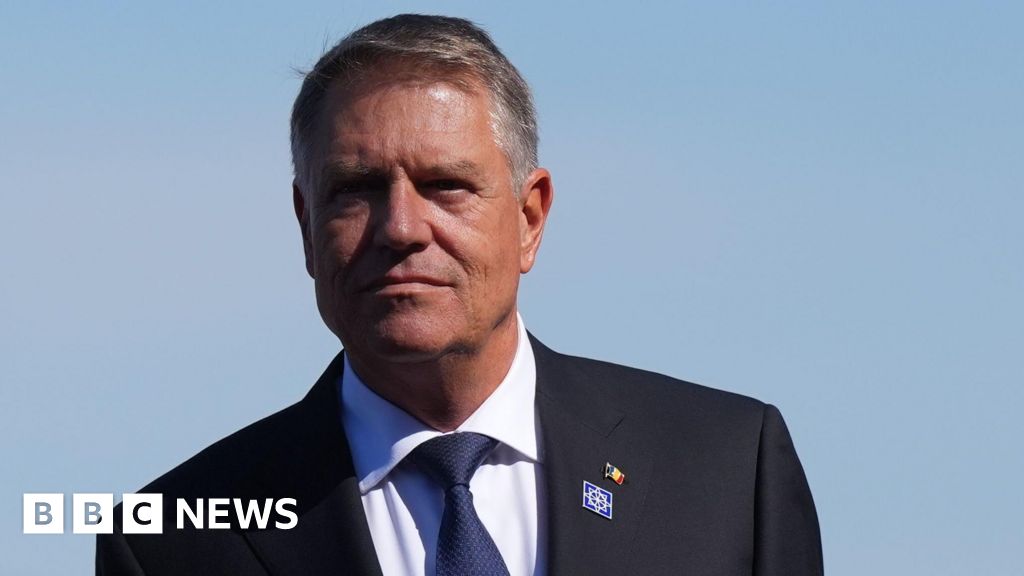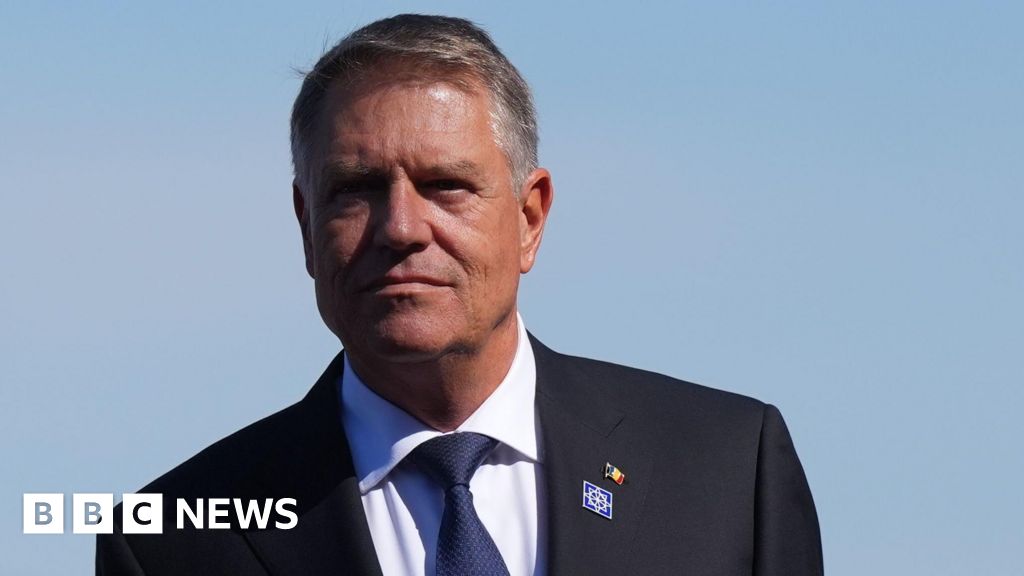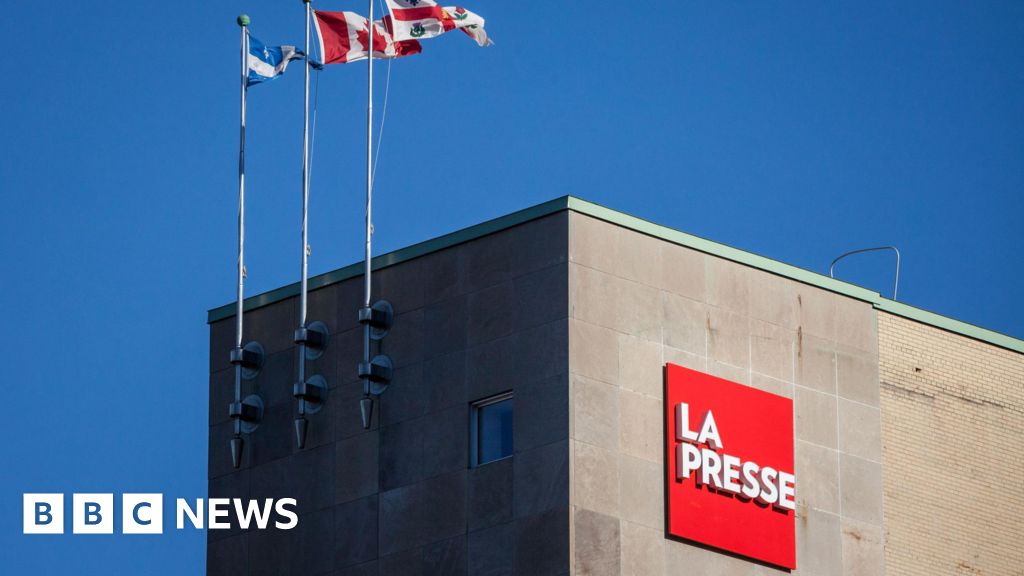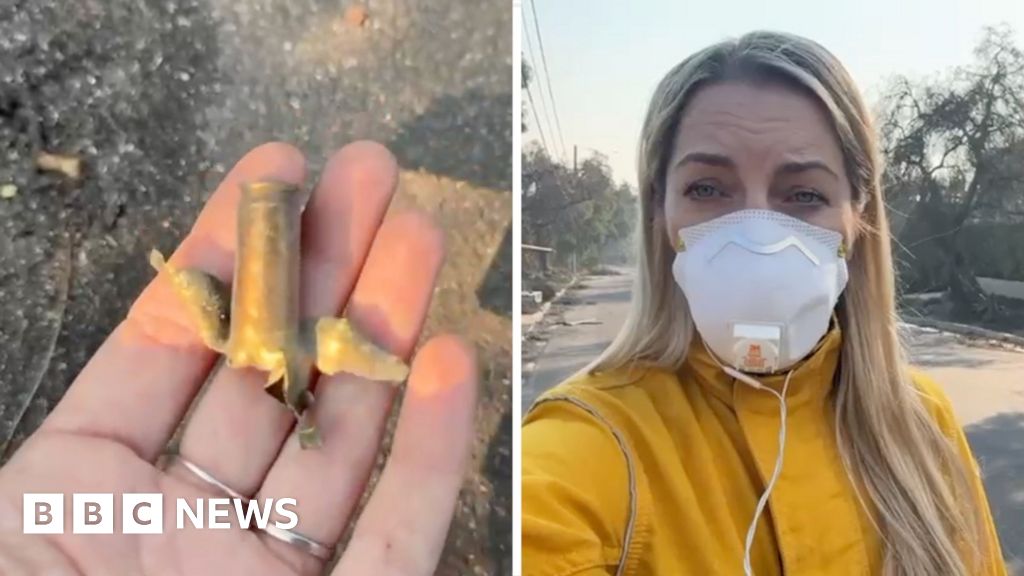
Romania’s President Klaus Iohannis has resigned, a day before he faced an impeachment vote sparked by the cancellation of the country’s presidential election last year.
Opponents had been pushing to suspend him over his decision to remain in office until a new vote in May.
Romania’s top court in December controversially annulled the election because of Russian state meddling allegations Iohannis had helped raise.
The centrist, pro-EU leader cited national security concerns, but critics and candidates in the poll said his actions were undemocratic.
In December, just 48 hours before Romanians were due to vote in the presidential run-off election, the nation’s constitutional court made an unprecedented ruling scrapping the entire process.
That left the country without an incoming president. Iohannis – who has served two terms since 2014 – chose to stay in office until his successor could be elected.
But his role in the cancellation of the election, and his reluctance to lead the country decisively since then, has led to a groundswell of popular anger.
Tens of thousands of Romanians have demonstrated in the streets, and lawmakers were due to begin a parliamentary process this week to suspend him from office.
Iohannis had said his decision to remain in office had been an attempt to provide political continuity. Romania’s constitution says a presidential term is five years, but also that the president should remain in office until their successor takes over.
But opposition lawmakers argued his extended term was illegal as the constitution requires that a presidency can only be extended in the event of war or “catastrophe”.
Iohannis bowed to the pressure on Monday, stepping down in a bid to limit the fallout of what he said would have been a divisive and damaging vote for the nation. Senate president and liberal leader Ilie Bolojan will assume the role of interim president on Wednesday.
Iohannis emphasised that he had “never – I repeat, never – violated the constitution” and that his decision was to “spare” Romania from “crisis”.
He also argued his removal from office would be viewed negatively by Romania’s allies. The eastern European country has been a part of the EU since 2007.
“Externally, the effects will be long-lasting and very negative,” Iohannis said. “Absolutely no one among our partners will understand why Romania is dismissing its president after, in fact, it has already started the procedure for electing a new president.
Romania is a key Nato member on the bloc’s eastern flank, and shares a long border with Ukraine. It is the latest eastern European nation to have an election marred by claims of Russian interference.
Romania’s constitutional court cancelled the election in December after Iohannis declassified intelligence documents suggesting that almost 800 Tiktok accounts created by a “foreign state” in 2016 were suddenly activated a month before the election, backing Calin Georgescu, an almost unknown far-right Nato-sceptic who has previously praised Russian President Vladimir Putin.
Romanian foreign intelligence said Russia was the “enemy state” involved, while domestic intelligence put Georgescu’s sudden surge in popularity down to a “highly organised” and “guerilla” social media campaign.
Georgescu won the first round of voting, and his supporters have argued the vote was stolen from him. In December’s parliamentary elections, the far right also performed strongly, gaining an unprecedented third of the votes.
With Iohannis out of office now, attention will refocus on the re-run of the election in May.
Georgescu, the radical outsider, is the strong favourite to win. Ioannis’s resignation looks set to further empower his electorate, and analysts and Georgescu’s supporters have called it a boost for the far-right.
Ioannis’s departure has also been welcomed by Georgescu’s liberal rival, Elena Lasconi.
Lasconi said Iohannis’s resignation had come “far too late to be considered honourable”, adding that she was glad parliamentary pressure “woke Iohannis from his slumber”.
Hundreds of anti-Iohannis protesters had gathered in the capital Bucharest on Monday calling for his resignation.
When it was announced, demonstrators cheered and broke through a police cordon, prompting officers to use teargas to hold them back, state media reports. At least six people were detained.



